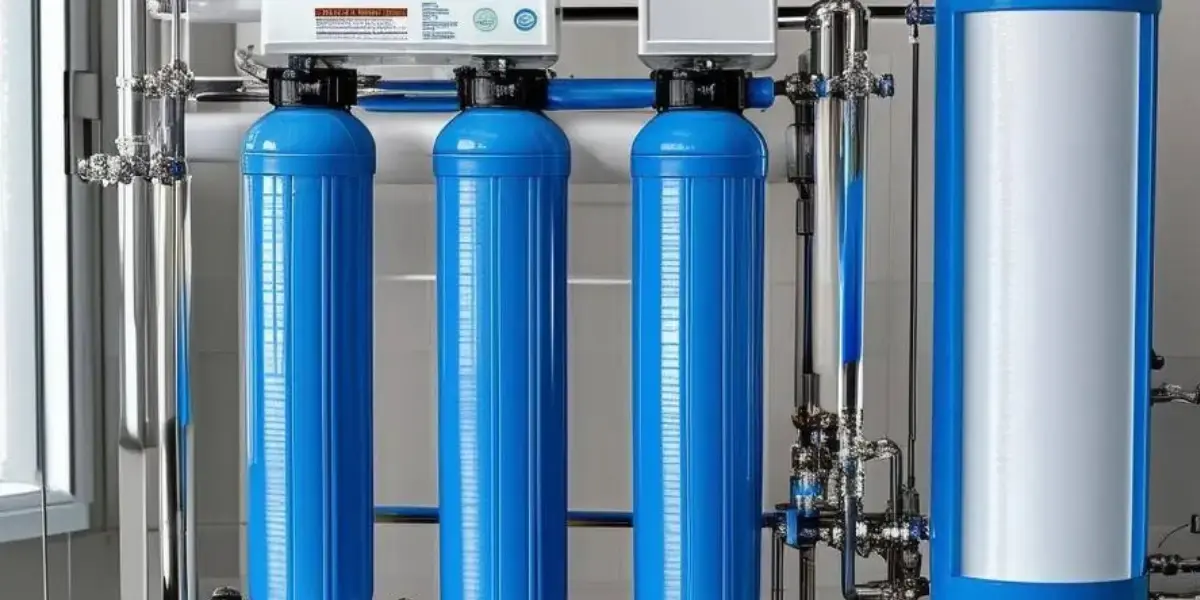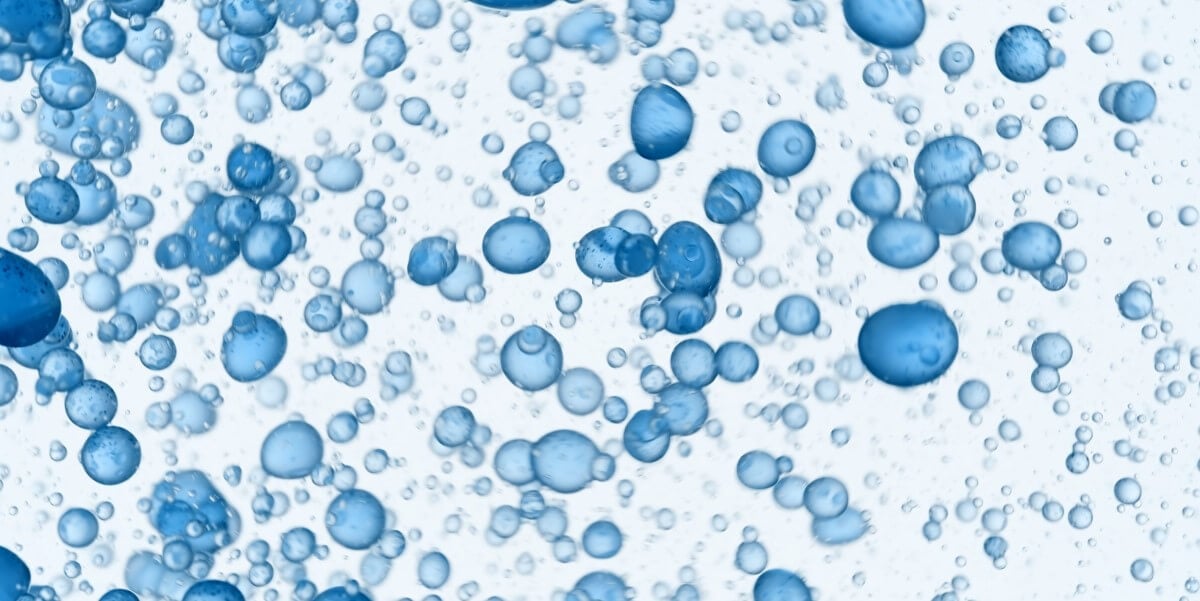Why now is the time to refine your water treatment process
Not treating water correctly can have disastrous and predictable results-death and disease in the most extreme cases. The most obvious reason to treat water is to provide humans with drinking water, but there are also other reasons to do so including preparing water for industrial purposes and making ultra-pure water, which is used in pharmaceutical processes.
Water treatment removes contaminants and organisms through a combination of biological, chemical, and physical processes. Compliance with water treatment guidelines is a complex issue whatever your business, but luckily good water treatment providers offer innovative methods that will allow you to adhere to your legal obligations and save you money whilst doing so.A brief history of water treatment
Ancient peoples first treated water over 3000 years ago. Their goal was to make drinking water taste better as they had no way of discerning clean from dirty water. They employed methods such as boiling, gravel and sand filtration and straining.
Chemicals were first used in treatment by the Egyptians, who used alum. In 300-200 BC, the Romans started building aqueducts and reportedly used silver coins to purify water. Forward 2000 years and Europe was going through the first Industrial Revolution. People realised that waterborne diseases posed serious risks to human and animal health, so large sewers were built to more safely and efficiently remove wastewater and sewage.
Waterborne diseases from untreated water
Not treating water is a sure-fire way of infecting large populations with the following diseases:
- Legionnaires’ disease: a severe form of pneumonia--lung inflammation usually caused by infection, which is caused by a bacterium known as legionella. Most people catch Legionnaires' disease by inhaling the bacteria from water.
- Cholera: an acute, diarrheal illness caused by infection of the intestine. Can turn into Weil’s Disease which results in meningitis, kidney failure, and jaundice.
- Giardiasis: is an intestinal infection marked by stomach cramps, bloating, nausea, and bouts of watery diarrhea.
- Hepatitis A: a liver infection caused by a virus that's spread in the faeces of an infected person.
- Dysentery: an infection of the intestines that causes diarrhoea.
- Typhoid: a bacterial infection that can spread throughout the body, affecting many organs. Without prompt treatment, it can cause serious complications and can be fatal.
Luckily, in the UK, we have the technology to easily prevent all of these diseases. An experienced water treatment provider will be able to offer your business tailored innovative and reliable products and services.
Now is a great time to refine your water treatment process as doing so will help your business in four key areas. You will be able to:
- Receive support for your business navigating the confusing world of compliance
- Ensure the longevity of your water assets
- Take advantage of the innovations in water treatment
- Respond to the current post-covid thrust towards enhanced health and safety measures
Compliance
Business owners can face prosecution for breaching health and safety law if they do not comply with ACoP L8. The purpose of this code is to help people in control of premises comply with their legal obligations in relation to Legionella, which include assessing risk, controlling risk, managing precautions, and keeping records.
Failure to comply with regulations can and has led to the tragic loss of human life and subsequent criminal investigations taken against those responsible.
Your water treatment provider can assist you with ACoP L8 compliance and also help you demonstrate safety and compliance in other areas including:
- Cooling Tower and Evaporative Condenser Regulations
- HTM 04-01
- Closed Heating and Chilled Systems Guidelines
- Swimming Pool and Hot Tub Guidelines
- Environmental standards including water discharge and Regional Protection Zones
Financial benefit
It is important for any business that the water treatment measures they implement do more than just comply with standards. Your business needs to see the financial benefits that come from refining your water treatment process, including:
- Reducing operational costs through reduced energy usage, maintenance, and repair
- Providing a return on investment (ROI) by minimising further costs in water treatment itself
If you are reading this blog, it is likely that your business is innovative and you see why water innovation matters. Make sure your water treatment provider shares your same vision and provides quality, sustainable, and ethical solutions. Their investment in innovation will ultimately lead to savings for your business.
Take advantage of water treatment innovations
Your water management provider should be a leader in innovative technologies with their core business having been built around water treatment, water hygiene, engineering services, legal compliance, air hygiene, and effluent water management.
Contracting a provider with these credentials will place your business at the forefront of water innovation. Here is a selection of recent water treatment innovations that your chosen provider should offer. They can help improve the safety and reliability of your water systems, whilst saving you money in the long-term.
PTSA tagging
Cooling towers can suffer from poor heat transfer, unexpected downtime, or operational failure through the internal build-up of scale and corrosion.
Recent developments incorporate PTSA fluorescent tracer technology to measure the delivery of inhibitors into the system. This enables optimised control of inhibitor levels.
Using this technology will lead to direct cost savings and, if the enhanced control enables the system to run at higher cycles of concentration, further savings can be made in chemical and water costs.
Solid chemical water treatment
Due to the challenges and limitations of traditional dosing, a range of blended, solid-concentrate, water-treatment chemicals for cooling towers and condensers, steam boilers, and closed-loop systems have been developed.
Solid chemicals can be placed directly into dosing systems, eliminating the risks involved with liquid chemicals typically supplied in cumbersome 25 kg or 200 kg plastic drums. As many as 20 recyclable 5 kg solid chemical tubs can be stored in the footprint of one standard liquid chemical 250 litre drum, reducing both the storage space required and the cost of delivery when ordering bulk quantities.
Chlorination (Hypochlorous Acid Generation)
The GENOX generator produces a colourless liquid which is generated on-site and requires no mixing or handling of toxic chemicals. Direct electrolysis of brine creates an oxidant NEUTHOX® on demand. It is inexpensive to operate and maintain.
Ultraviolet Light (UV)
Ultraviolet (UV) radiation is generated by a special lamp. When it penetrates the cell wall of an organism, the cell’s genetic material is disrupted and the cell is unable to reproduce. This method effectively destroys bacteria and viruses
On-site Legionella testing
Legionella bacteria is an existing threat in domestic and commercial water systems. Traditionally, water samples are sent away for analysis, meaning a building owner might be unaware of a problem for days. However, rapid swab-testing kits that enable the detection of Legionella in just 25 minutes are now widely available.
They are incredibly accurate at identifying the fatal Sero group 1 strain of Legionella. However, while being a useful self-test tool in the toolkit, they are no substitute for a robust water testing programme and UKAS laboratory certification.
And let’s not forget covid-19 (as if we could)
The Chartered Institute for Environmental Health (CIEH) has published guidelines for businesses that are once again reopening after potentially having been closed for a year and a half.
Their recommendation is for buildings and facilities to carry out vital safety checks to avoid increasing the risk of the potentially fatal Legionnaires’ disease in their water supply. As water systems have not been used in a long time, there is an increased chance of bacteria forming in them--and an increased risk of Legionnaires’ disease.
People are also more susceptible to the disease during or after having contracting Covid-19, which makes the situation ever-more serious.
Conclusion
Correctly treating water is both complex and expensive--but it cannot be ignored. Taking a proactive rather than a reactive approach is key to minimising any potential risk-both economic and reputational.
Partnering with a trusted team that understands your needs as a business is the secret to long-term success. Your water treatment partner should be able to offer innovative solutions for your business that save you money. We are currently entering a more challenging post-covid landscape in which health and safety concerns are at the forefront of everyone's mind. Choosing the right partner and refining your water hygiene requirements is more important than ever before.
Topics: Water Treatment & Hygiene

Written by Jon Greaves
Jon has progressively worked through operational roles, account management, technical management, and senior management roles over the last 16 years within one of the group companies before moving into the role of Water and Air Managing Director. Jon has experience across multiple sectors of water and air compliance, including district energy networks; data centres; healthcare; food and beverage and facilities management. Jon acted as a corresponding steering committee member on CIBSE CP1 – Heat Networks Code of Practice for the UK released in 2020.




